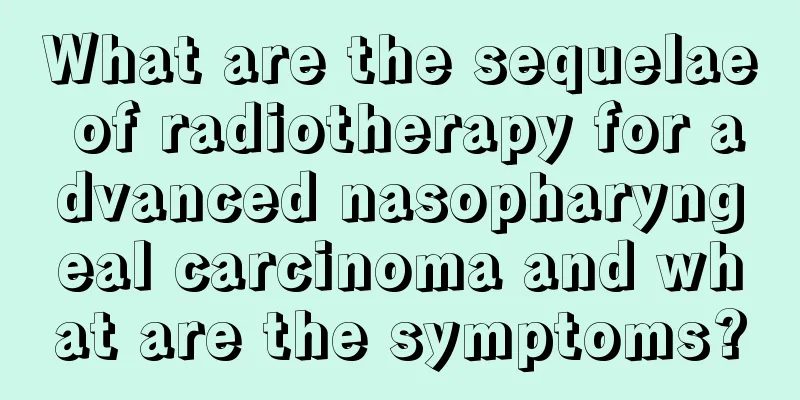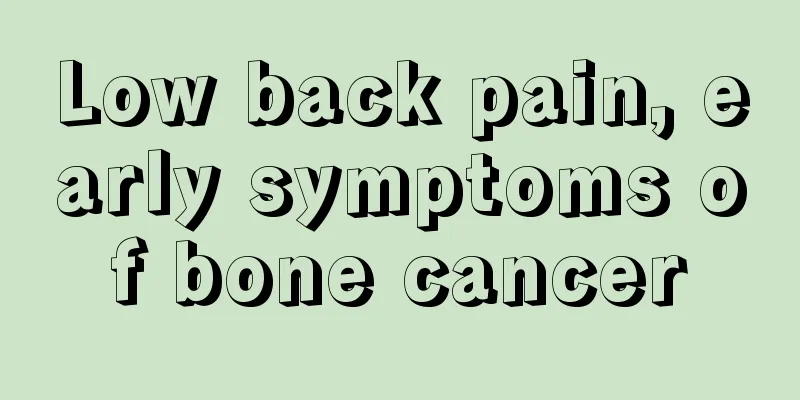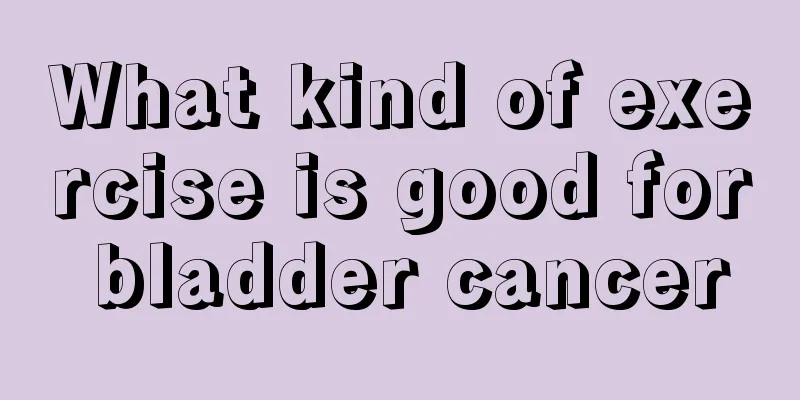What are the sequelae of radiotherapy for advanced nasopharyngeal carcinoma and what are the symptoms?

|
What are the sequelae of radiotherapy for advanced nasopharyngeal carcinoma? What are the symptoms? Advanced nasopharyngeal cancer often invades the optic nerve near the visual chiasm, causing decreased vision, nasal or temporal blindness, and can cause blindness in one or both eyes. Fundus examination reveals optic nerve atrophy. The nerve has a long course and is located in an area that is easily invaded by nasopharyngeal cancer. It is often invaded early, causing diplopia. The eyes cannot move and are esotropia. The sequelae of radiotherapy for advanced nasopharyngeal carcinoma are: 1. Systemic reactions: including fatigue, dizziness, loss of appetite, nausea, vomiting, no taste or smell changes in the mouth, insomnia or drowsiness, etc. Some patients may experience blood changes, especially leukopenia. Although the degree varies, it can usually be overcome and completed with symptomatic treatment. If necessary, take vitamin B1, B6, C, metoclopramide, etc. If the white blood cell count drops to less than 3×109, the child should suspend radiotherapy. 2. Local reactions: including skin, mucous membranes and salivary glands. Skin reactions are dry dermatitis or even wet dermatitis, and 0.1% ice talcum powder or lanolin can be used topically as a base anti-inflammatory ointment. Mucosal reactions are manifested as congestion, edema, exudation and accumulation of secretions in the nasopharyngeal and oropharyngeal mucosa, and mouthwash and lubricating anti-inflammatory agents can be used topically. In a few patients, the swelling of the parotid glands may gradually subside after 2Gy of parotid gland irradiation. When irradiated with 40Gy, saliva secretion is significantly reduced, oral mucosal secretion is increased, and the mucosa is congested and swollen. The patient has dry mouth and difficulty eating. Excessive irradiation of the parotid gland should be avoided. 3. Radiotherapy sequelae: mainly include temporomandibular joint dysfunction, soft tissue atrophy and fibrosis, radiation-induced caries, radiation-induced mandibular osteomyelitis and radiation-induced encephalomyelopathy. |
<<: Can early and middle stage breast cancer be cured?
>>: What fruit is best for bladder cancer?
Recommend
How long can you live with colon cancer
Intestinal cancer is a relatively serious digesti...
Is cerebral infarction life-threatening?
Cerebral infarction is a very serious disease, be...
What does urine protein addition and subtraction mean?
Go to the hospital for a routine urine test. If u...
What to do if you feel nauseous and want to vomit after eating oily food
There are usually various oils in human diet, suc...
What should I do if oil stains get on my clothes?
When we eat hot pot or other things, we always ac...
There is a red rash on the glans penis, it doesn't itch or hurt
Once a rash appears, it is usually accompanied by...
What is the reason for the hard bump on the wrist
In our daily life and work, our hands are often b...
Is frequent stomach pain caused by stomach cancer?
How far is "stomach pain" from stomach ...
What are the advantages and disadvantages of plasma extraction?
I believe many people have had the experience of ...
What medicine should I take if I have half of my thyroid cancer removed
After hemisection of thyroid cancer, patients nee...
How to reduce the inheritance of bladder cancer
Due to the high pressure of life, many people neg...
How long can you live if lung cancer relapses? It depends on many situations
How long you can live is uncertain. It needs to b...
Suffering from insufficient blood supply to the heart at the age of thirty
With the development of society, many diseases th...
What harmful substances are contained in smoke?
In daily life, people can be seen smoking everywh...
What is the reason for frequent dizziness and tinnitus
If symptoms such as dizziness and tinnitus occur ...









